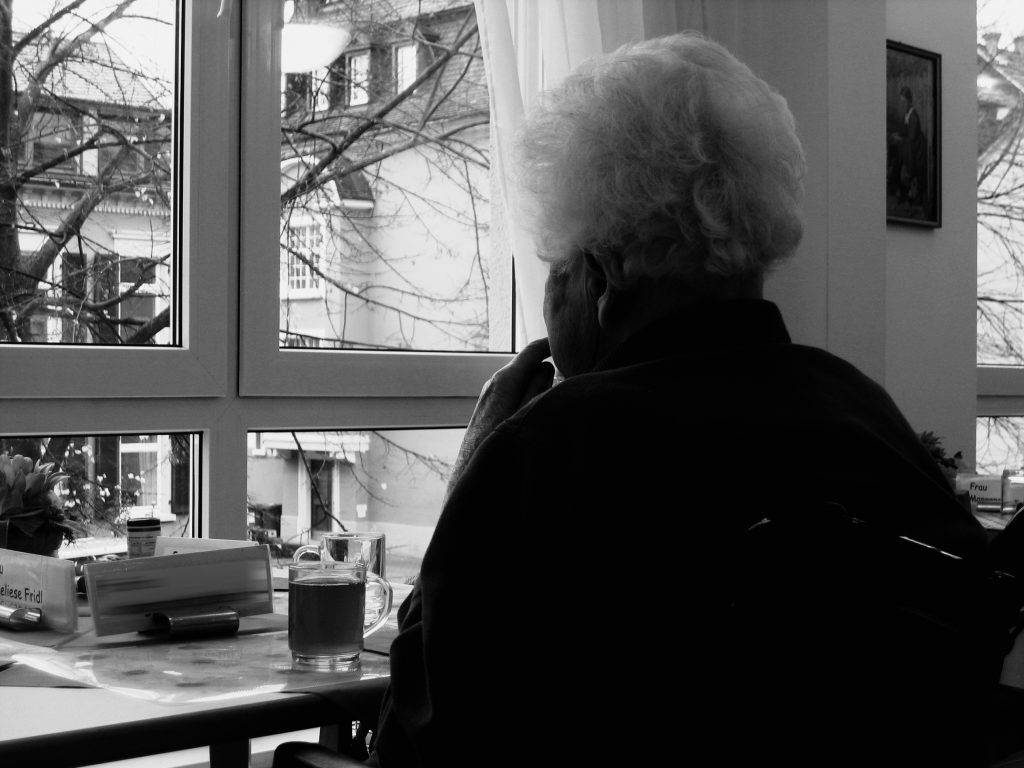
If you haven’t heard the term before, ‘sundowning’ is a phenomenon that occurs seasonally, and is marked by significant differences in the weather, the duration of daylight, and other factors. It is often felt more keenly by seniors in Olive Branch and elsewhere who are bothered by dementia because it represents a major disruption to their daily patterns and routines. In fact, sundowning can actually trigger worsening of dementia and can lead to increased irritability, as well as greater disorientation and wandering. Senior home care professionals are aware of the effects of sundowning, and generally take steps to lessen the effects, so their charges aren’t as deeply impacted. Here are some ways you can cope with the effects of sundowning if you have a senior relative suffering from dementia.
Make environmental adjustments
You can significantly lessen the effects of sundowning for any senior you’re caring for, by making subtle little changes to their environment that minimize the effects of sundowning. Overcoming early darkness can be handled by drawing the blinds before the sun sets, and turning on the house lights. Make sure everything on the interior is well lit, so any confusion or disorientation is minimized. At the same time, consider doing some activities with your loved one during the dusk hours, so as to take their mind off the changing daylight hours.
You might want to do some painting, play cards with them, look through old photos, or anything they find particularly enjoying. If your senior becomes unruly or insistent about something, don’t try to overrule them or overcome their reasoning. It’s much better if you just go along with the flow, so their agitation isn’t increased. If there are activities that are particularly difficult for your loved one, try to address them earlier in the day when they might be less agitated or disoriented.
Meaningful activities
One of the best things you can do to help a senior loved one get through the effects of sundowning is to try and provide them with four or five meaningful activities throughout a given day. Experts tell us that all humans require several really meaningful experiences every day in order to have a good quality of life. Even if the activities themselves only last for 10 minutes or less, the emotional value they derive from these activities lingers far beyond the time frame of the actual activity.
The activities you choose should be ones that you know your loved one appreciates and enjoys, for instance, gardening, crafting, doing crossword puzzles, painting, etc. If you can plan some of these activities ahead of time, it will reduce the stress level on yourself, and it will also provide you with a tentative schedule that you can use to keep your senior loved one engaged.
Provide opportunities for being helpful
Almost everyone has a special talent that they have developed over the years, and while your senior loved one may not have recently used that talent, it’s probably still there. Drawing on that talent they may have to find ways that other people can be helped because this is one of the best ways to make a person feel good about themselves. When you are able to use your talents to make someone else better off, it can impart a great feeling of self-worth and value.
Browse through community activities and initiatives to find things that your senior loved one might be able to participate in and use any skills or talents they have to help others. By temporarily overlooking their own situation in favor of helping other people, they can completely forget about things that may be bothering or irritating them and derive a good feeling about volunteering or assisting other people.
Evening quiet time
One more great way of minimizing the effects of sundowning can be to establish quiet time during the evening. As the day winds down, you might want to play some soft music or make this a reading hour. You might even want to take your loved one for a quiet stroll around the neighborhood. If friends or relatives regularly contact your senior, have them call during the evening hours so that it can contribute to the supportive feeling they’ll have when a loved one pays attention to them.
If you do something like watch television, make sure you avoid shows which might be stressful or upsetting and try to stick to those which rely on humor or which have pleasant family themes. The evening hours should also feature much less noise and clutter in the daily routine, and it should not be a time for visiting with a number of people. It’s best to limit any visitors at this time to one or two people, and it would be even better to schedule visits for earlier in the day if possible.
